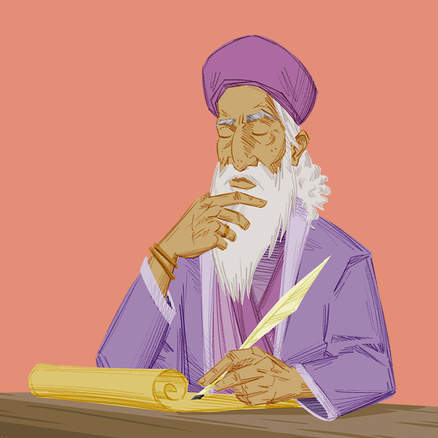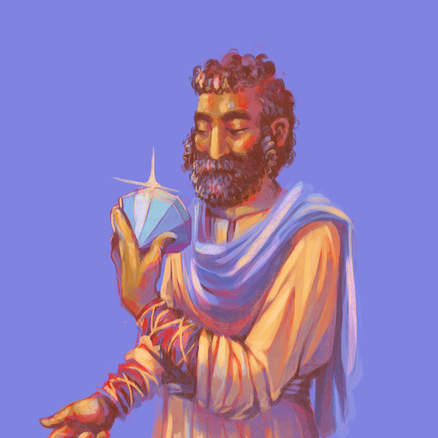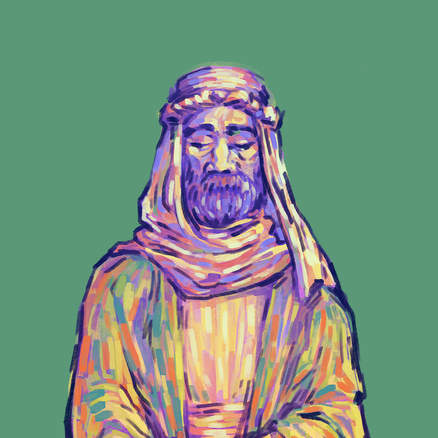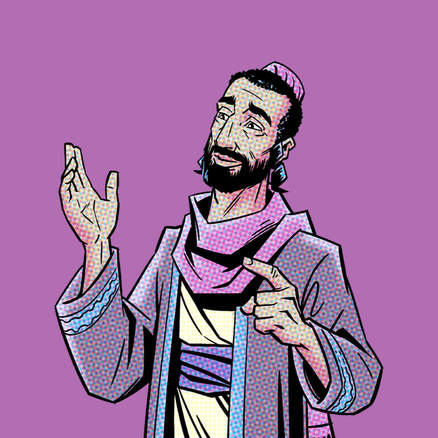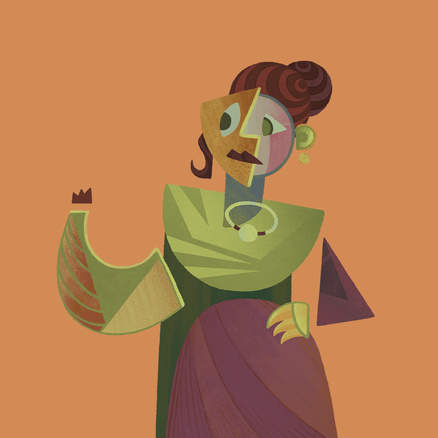
The Book of Psalms
When we take the time to learn how to read biblical poetry well, it can bring the entire story of the Bible into clearer focus.
Script
Introduction [00:00-00:19]
Jon: We’ve been talking about poetry in the Bible––how biblical poets love design and masterfully use metaphor and symbolism. These poems invite us into an experience, to ponder ideas slowly and from many angles.
Tim: And the largest collection of poetry in the Bible is the book of Psalms, so that’s what we’re going to look at here.
A Literary Temple [00:20-01:58]
Jon: Now the Israelites composed lots of poetry throughout their history.
Tim: Yeah. Poems were written by Israelite sages, kings, and prophets. Some poems were sung by choirs in the Jerusalem temple, while others were prayed by families at home. And over the centuries, the most important and widely read poems were compiled together to be read or sung on special occasions.
Jon: And I’m familiar with books of poetry, a large collection of the greatest poems in one place, and I can read through and pick my favorites.
Tim: But the book of Psalms isn’t that kind of collection. Here, each poem has been expertly crafted and then placed where it is for a reason, to create a storyline from the book’s beginning to its end. The Psalms poetically retell the entire biblical story, and they invite you into a literary temple.
Jon: A literary temple?
Tim: Yeah. So the tabernacle and then later the temple in Jerusalem were where ancient Israelites went to meet with God. When you arrived, you would see art and imagery everywhere. You’d see priests performing rituals, you’d hear songs and prayers, all of it symbolically proclaiming that your God rules the world from this mountain. And you’re in his living room. Jon: So the temple was a place to be in God’s presence and also to immerse in the story of God’s Kingdom.
Tim: Exactly. And so try to imagine how traumatic it was when the Babylonians invaded Jerusalem, plundered and burned the temple, and then took many Israelites into exile.
Jon: Yeah. Where can they go now to meet with God, to sing their story and say their prayers?
Tim: That’s where the book of Psalms comes in. It’s a prayer book for exiles designed as a virtual temple. You enter the Psalms to meet with God and to hear the entire biblical story of God’s Kingdom sung back to you in poetry.
The Design of Psalms [01:59-03:41]
Jon: Cool, but how does the Psalms do it?
Tim: Let’s start with the book’s design. There are 150 poems broken up into five clear sections. At the beginning, there’s been placed a short introduction, Psalms 1 and 2, which lay out the main themes of the entire book by reviewing the biblical storyline.
Jon: Okay.
Tim: Psalm 1 looks back to the garden of Eden and its river of life.
Jon: Yeah. God placed humanity in a garden-temple. And here, humans decide to define good and evil on their own terms and so are exiled from the garden.
Tim: But the first psalm paints a portrait of hope about an upright human who delights in God’s wisdom, which is called Torah, or “instruction.” This person is like the tree of life in the garden temple. They eternally blossom because they’re planted in the river of God’s life.
Jon: Yeah. That’s beautiful. But who’s it supposed to be?
Tim: Well, remember that story in Genesis. After humanity’s foolish rebellion, God made a promise.
Jon: Oh right. A future human, the seed of the woman, who would come and defeat evil and restore the world.
Tim: And that’s what Psalm 2 is about, God’s promise that a king would come from the line of David. He’s called the “son of God” and “the Messiah.” God appoints him to bring justice on human evil and to restore God’s Kingdom and peace over the nations.
Jon: So Psalms 1 and 2 introduce all these main themes.
Tim: Yeah, and then the book develops those themes through the five sections. The first two explore the complicated story of David and his royal family. The third section focuses on the tragedy of Israel’s exile and the downfall of David’s royal line. But the fourth and fifth sections rekindle the hope for the Messiah, a new temple, and God’s Kingdom on the other side of the exile. Then the book ends with a five-part conclusion, praising God for his faithfulness.
David and the Psalms [03:42-04:46]
Jon: Cool. Now, nearly half of the psalms are connected to one guy, King David, who God chose to rule Israel.
Tim: Yes. David’s story is really important in this book. He experienced many times of hardship, but he trusted God with radical faith. And in these poems, David shares his fears, confesses his failures, and offers thanks to his redeemer. And he’s constantly speaking of a deep longing to be in God’s presence in the temple.
Jon: But wait! David lived before the temple was even built.
Tim: Exactly. This portrait of David hoping and praying for God’s Kingdom and a future temple, it resembles the hopes of the later generations of the exiles. And so David’s prayers could become theirs as well.
Jon: David’s like a prayer coach, giving us words for how to pray and how to discover God’s presence in good times and bad.
Tim: Exactly. There are 73 poems connected to David, but most of the rest come from later generations of biblical poets. And they have learned to pray and hope like David. And so the end result is the book of Psalms, designed as a virtual temple for all generations of God’s people. (Psalms attributed to David: Psalms 2-32, 34-41, 51-65, 68-70, 86, 95, 101, 103, 105-106, 108-110, 122, 124, 131, 138-145)
Conclusion [04:47-05:11]
Jon: This isn’t the kind of book you just read once and put down.
Tim: No. It’s designed for a lifetime of slow re-reading and reflection. These prayers and laments and songs of praise are meant to become our own. They’re poems for exiles, who are learning to live by God’s wisdom and to seek God’s justice in the world as they hope for the coming Messiah and the Kingdom of God.
Related Content







